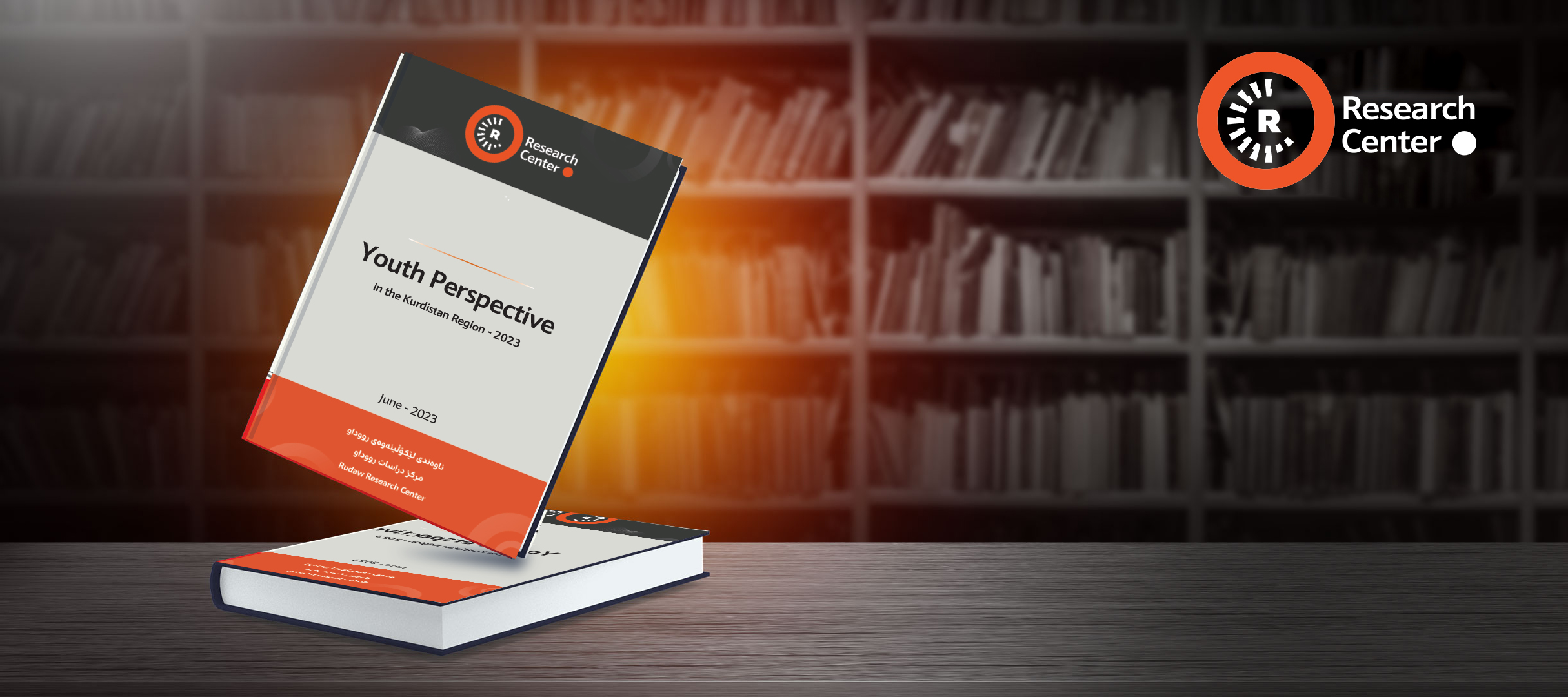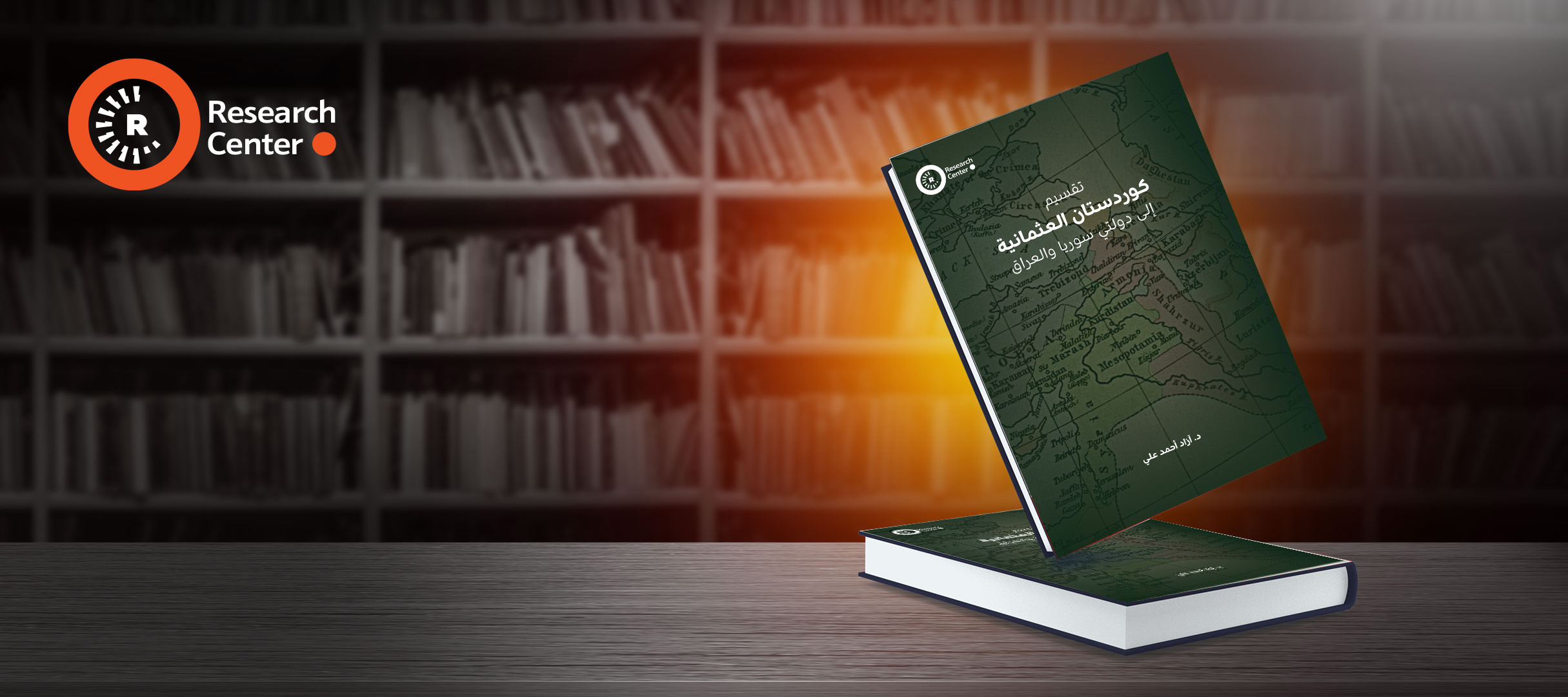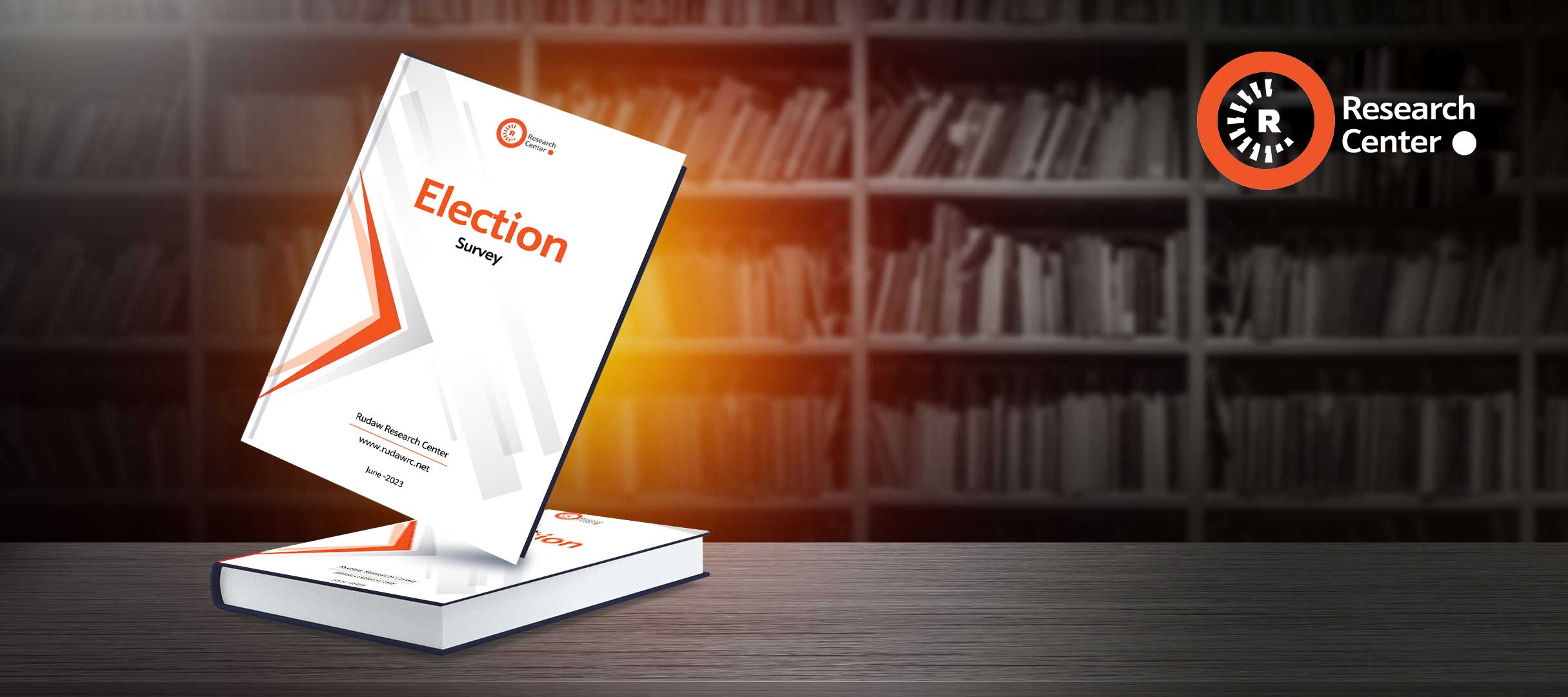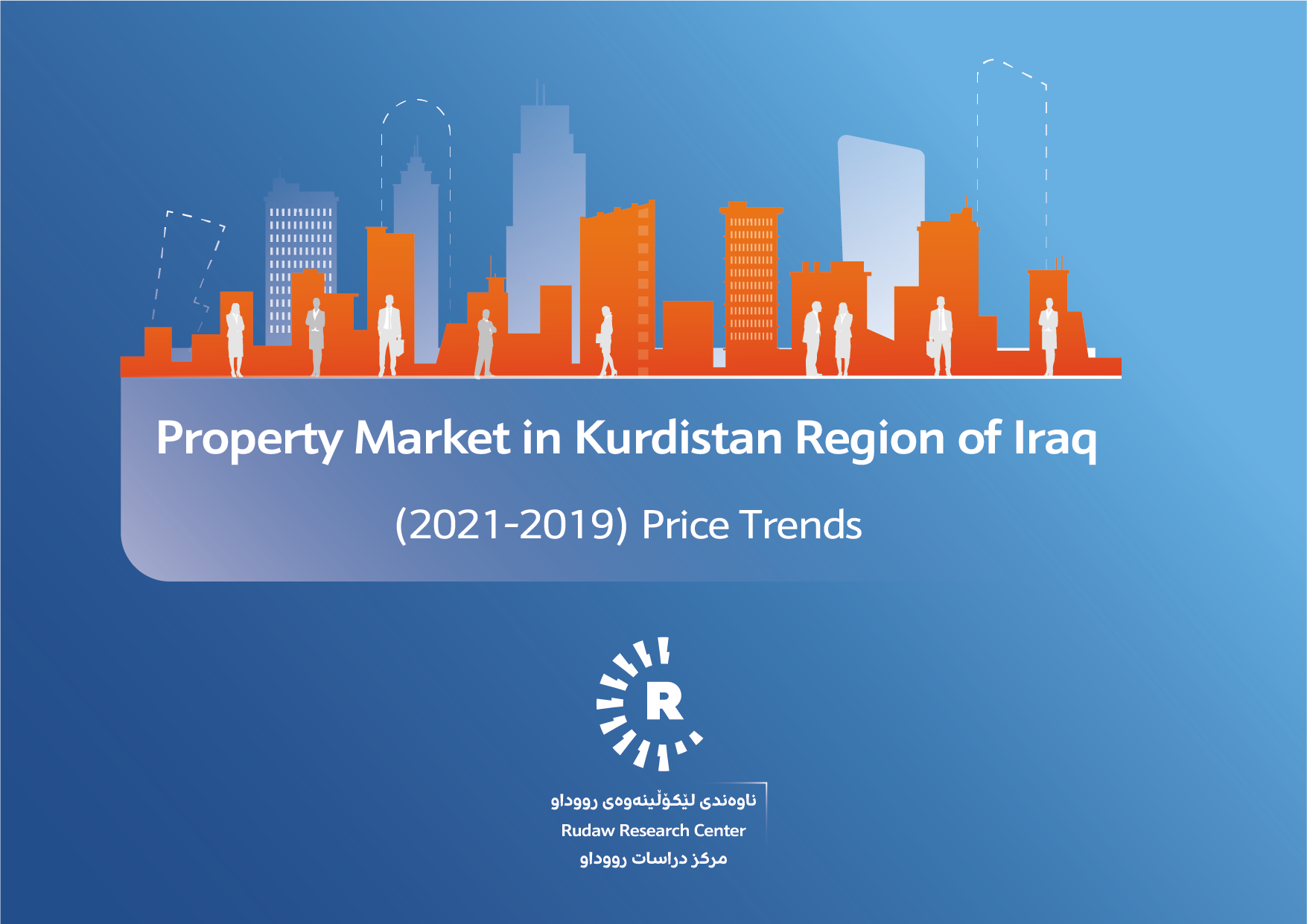The "Youth Perspective in the Kurdistan Region - 2023" is the latest publication of the Rudaw Research Center and provides detailed information on the views and perspectives of young people on social، political and economic issues، along with the private lifestyles of young people across the Kurdistan Region.
Please click here to download final report as PDF
Youth Perspective in the Kurdistan Region - 2023
Download
Preface
Young people aged 15-29 constitute a significant portion of the population in the Kurdistan Region, accounting for 28% or 1,727,903 individuals. Additionally, approximately 35% of the population in the region is under the age of 15, accounting for 2,159,879, highlighting the continued presence and influence of the young population for the next two decades. This demographic dynamic has important implications for the labor force, wealth distribution, job opportunities, and political participation. Understanding the perspectives of young people on economic, social, and political matters is crucial as it can shape the future of society.
The findings from the survey conducted by Rudaw Research Center in June 2023, called "Youth perspective in the Kurdistan Region - 2023" shed light on various aspects of young people's lives. The survey revealed that a significant majority of young individuals, 90.1%, prefer to remain with their families and rely on them for financial and social support. About 52% of respondents receive financial support from their families, while 66% stated that they would seek help from tribes and relatives in times of trouble, with only 33% considering official government institutions as a support option. Common activities among young people in the Kurdistan Region include visiting markets, sleeping, and frequenting mosques and religious places. Additionally, 79.9% of respondents reported using social media during their free time.
The influence of family is notable in shaping the attitudes of young people in the region, particularly since many parents have limited education. The survey indicated that 66.3% of respondents' mothers and 45.8% of respondents' fathers are illiterate, while 39.8% of parents are high school dropouts, with only 4.7% having a high school diploma. Consequently, the traditional perspectives ingrained within families often shape the outlook of young individuals. It is worth noting that a significant proportion of young people (83.9%) expressed a belief in individual freedom. However, 85.5% stated that girls or women should not travel alone, primarily due to religious, cultural, and societal influences, creating a contradiction between advocating for individual freedom and rejecting it.
The survey also revealed a strong interest in political participation among young people, with over 73% expressing a desire to vote if eligible. This percentage exceeds the overall voter turnout in the last Kurdistan parliamentary election (59%) and is significantly higher than the general election turnout in the Iraqi parliamentary election of 2021. The survey results indicate that out of the 1,727,903 young people surveyed, approximately 416,000 individuals (around 27%) do not wish to vote, while 1,261,369 individuals (about 73%) stated they would vote if given the opportunity. Of the interested voters, 33% chose not to disclose their voting preferences, accounting for more than 436,205 individuals.
Several reasons were cited by individuals who expressed their decision not to vote, including a lack of trust in political parties, concerns about election transparency, and the perceived absence of qualified candidates. However, it is anticipated that these dynamics may change as the election approaches. Consequently, the combined impact of those who declare their intention not to vote and those who choose not to disclose their voting preferences could introduce an element of surprise in the upcoming election. The survey findings indicate that a majority of young people have sought employment in the private sector, considering it a pressing issue. However, the private sector has not entirely met the expectations of young individuals, leading to a sense of uncertainty about the future. Factors such as unequal opportunities and low wages within the private sector continue to drive young people to consider working in the public sector. This calls for the government's attention to develop and promote the private sector in a manner that provides a sense of certainty for young individuals. Addressing the significant gender gap in the workplace is of utmost importance. According to the survey, only 43.9% of young people are employed, and there exist notable gender inequalities within the workforce. The low labor force participation rate among women and girls, with 61.5% of males compared to a mere 16.1% of females, is influenced by their greater involvement in unpaid work, which poses challenges for effective development policies.
In conclusion, the comprehensive survey conducted by Rudaw Research Center, carried out by an 11-member team, provides a wealth of information. These findings serve as a critical foundation for assessing socioeconomic policies and considering the opinions and aspirations of young individuals. By incorporating these insights, policymakers can make informed decisions to address the concerns and aspirations of the youth population effectively.
Ziryan Rojhelati
The Director of Rudaw Research Center
Summary
This report presents an analysis of a survey conducted in 2023, which aimed to gather insights and opinions from young individuals aged 15-29 regarding economic, political, and social matters. Given that the youth population constitutes 28% of the overall population, their perspectives hold significant influence over the trajectory of political and social developments. The primary objective of this survey was to gain a deeper understanding of how young people perceive various societal issues, which can prove crucial in shaping policies and initiatives. The survey results indicate that young individuals are more inclined towards seeking employment in the private sector, despite a preference for working in the public sector. This preference can be attributed to factors such as low wages, limited opportunities, lack of job security, and the prevalence of unskilled labor. Additionally, a concerning finding reveals a substantial gender discrimination in the workplace, with limited female representation in the labor market. Furthermore, there is a growing trend of conservatism among individuals aged 15-29, which manifests both socially and politically. While youth strongly value individual freedom, with 83.9% in the Kurdistan Region expressing this belief, it is peculiar that 85.5% feel that girls or women should not travel alone, largely influenced by cultural, religious, and societal norms. It is noteworthy that young people exhibit an increased desire for political engagement, as reflected by 65% openly expressing their intention to vote. However, 33% of respondents chose not to disclose their preferred political party, signaling the rise of conservative ideologies and a reflection of the current political landscape.
This survey was conducted in June 2023 based on the population of the Kurdistan Region and the proportion of young people aged (15-29) all over the Kurdistan Region, with the aim of revealing the views of young people on economic, social and political issues. For this purpose the response of 1122 samples were taken, randomly and people from the street and public places were interviewed.
Key Finding
The percentage of those who are jobless in the Kurdistan Region is 13.6%, and there is a difference between the provinces and independent administrations.
Youth in the Kurdistan Region are more active or likely to work in the private sector, with 71.3% of those who said they were working in the private sector and 28.7% employed in government.
Young people in the Kurdistan region have an average monthly expenditure of 236,000 ID (Iraqi Dinar), of which about 52% receive financial support from their families,
There are two major challenges for young people to find work in the Kurdistan Region: a lack of job opportunities and a low salary or payment.
The participation of young people in civil society organizations and political parties activities has increased.
At the stage of the Kurdistan Region, 72.7% of young people expressed their intention to exercise their right to vote if given the opportunity, while 27.3% stated they would not participate.
In the Kurdistan Region, 33% of young people preferred to keep their votes undisclosed. Among the 67% who did disclose their votes, 49.4% chose to vote for the PDK, 6.8% for the PUK, and 5.1% for the New Generation Party.
A significant majority of young individuals, 90.1%, prefer to remain with their families and rely on them for financial and social support. About 52% of respondents receive financial support from their families.
A significant proportion of young people (83.9%) expressed a belief in individual freedom. However, 85.5% stated that girls or women should not travel alone, primarily due to religious, cultural, and societal influences.
Overall, in the Kurdistan Region, 66% stated that they would seek help from tribes and relatives in times of trouble, with only 33% considering official government institutions as a support option.
Among young people, 65.7% use Snapchat, 62.1% use Facebook, and 52.7% use Instagram. This shift in behavior indicates a change in social media preferences among young people in the Kurdistan Region, as Facebook was previously the primary platform.
The Research Team
Ziryan Rojhelati
Mahmood Baban
Raqib Bahaddin Mohemmed
Data Collection Team
Derya Rafiq
Avris Rashid
Berwar Abdullah
Hezhin Fettah
Vin Siyamend
Peywend Shemal
Dnya Talib
Azhin Rizgar
Demographic Profile of Youth in the Kurdistan Region
According to the latest report from the Kurdistan Region Statistics Office, the total population of the Kurdistan Region is 6,171,083, with the age group of 15-29 accounting for over 28% of the population. The survey included two categories of young people, aged 15-24 and 25-29, comprising 59.2% and 40.8% respectively. The average age of participants from the Kurdistan area was 22.5 years. Gender participation rates among young people were 61.1% for males and 38.9% for females. The highest female participation rates were observed in Sulaymaniyah, Duhok, Halabja, and Raperin, while the lowest were in Zakho and Erbil.
In terms of marital status, 62% of respondents were single, 37.3% were married, and 0.5% were divorced. The highest percentage of married individuals was found in Zakho and Garmian with 44%, while Halabja had the lowest percentage at 29.6%. The survey also revealed an overall illiteracy rate of 4.6% among participating youth. The literacy levels were categorized into three groups: below high school, high school, and above high school. At the Kurdistan Regional level, 54.9% had below-high school education, while 20.6% held a high school diploma. Erbil, Halabja, and Garmian had the highest percentages of high school graduates, whereas Zakho, Duhok, and Sulaymaniyah had the lowest.
Regarding gender differences, males had a higher percentage (58.7%) of below-high school education compared to females (48.9%). However, a higher proportion of females had a high school diploma. The proportion of individuals with below high school education decreased with age, with 63.6% of those aged 25-24 having below high school education, while 42.4% of those aged 25-29 had the same level of education.

Considering the significant influence of family on young people's lives, the survey also examined the literacy level of the participants' parents. At the Kurdistan Regional level, 67.3% of the mothers were illiterate, and 27.5% had less than a high school education. The province with the highest illiteracy rate among mothers was Duhok with 80.3%, while Garmian independent administration had the highest illiteracy rate of 88.9%. The literacy level of the fathers varied slightly, with 45.8% being illiterate, 39.8% having less than a high school education, and 4.7% having a high school diploma. The lowest father illiteracy rates were found in Soran with 28.3% and Halabja with 33.3%, whereas the highest rates were observed in Zakho, Duhok, Raperin, and Garmian. The survey sample was distributed across four provinces and four independent administrations. At the provincial level, Erbil received 30% of the samples, Sulaymaniyah received 23%, Duhok received 21%, and Halabja received 5%. For the independent administrations, Soran received 5%, Zakho received 5%, Raperin received 6%, and Garmian received 5%. The purpose of this distribution was to capture diverse perspectives based on residents' geographical locations, including urban and rural areas. The sample consisted of 79.1% urban residents (including provincial capitals and independent administrations) and 20.9% rural residents.





